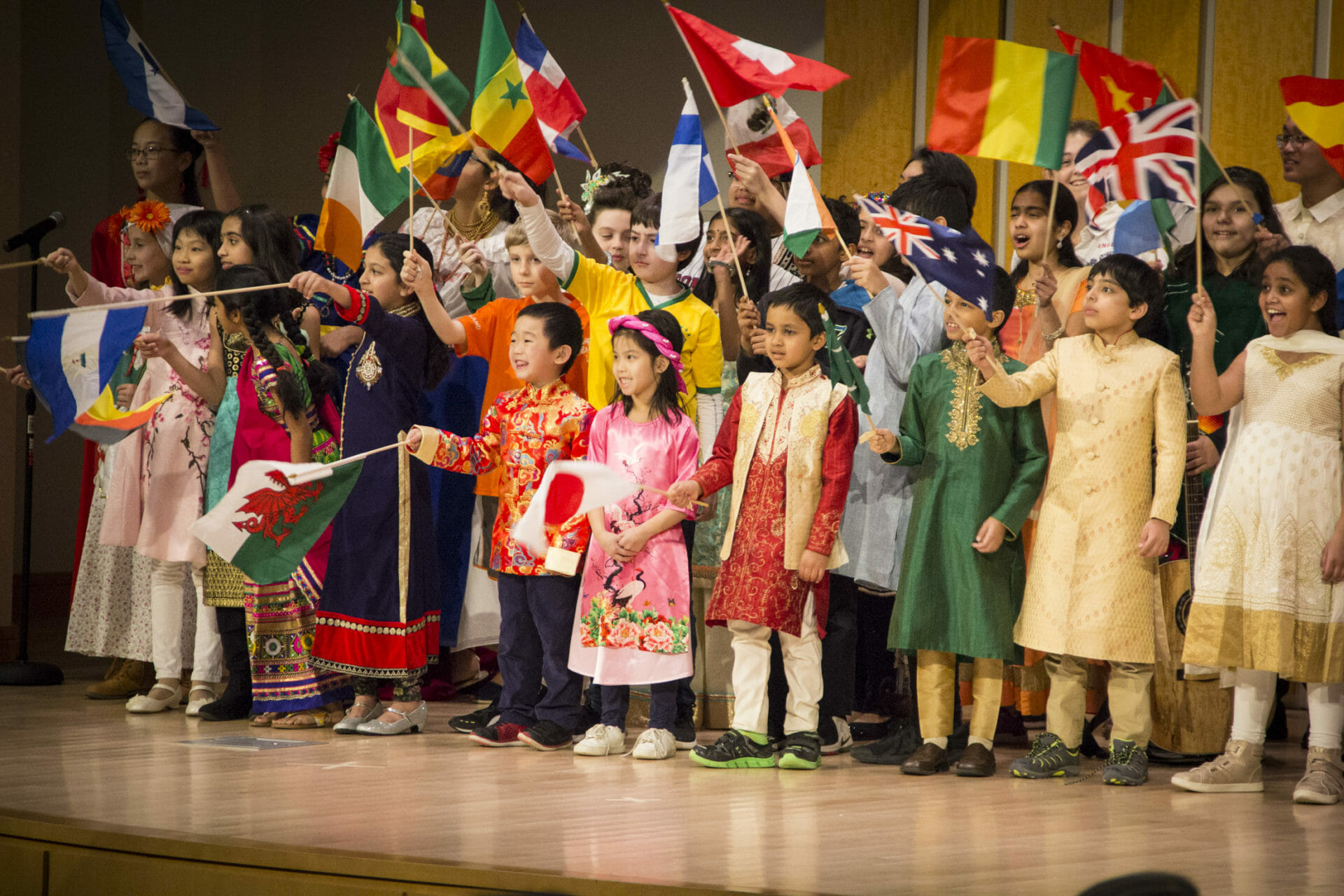On Tuesday, February 15, our school family lost a very dear member with the passing of Nadia Danett, an exceptional and influential Saint Louis Country Day School and MICDS world languages teacher from 1960 to 1999. Nadia, born to Russian parents, was raised in the town of Kremenets in what was then eastern Poland and is now western Ukraine. I have thought of her life’s journey, and more importantly her life’s hopeful decisions, so often since she died, and even more so since the Russian government made its own fearful decision to invade Ukraine yesterday at dawn.
Nadia’s early life reads like the plot of a novel set in mid-twentieth-century Europe. In the first years of her marriage to Chesia, an ethnic Russian like herself, Nadia’s family resisted Soviet rule at considerable risk to themselves. Her father-in-law was imprisoned for being “an enemy of the people” and her mother, in an event that foreshadowed the hostilities unfolding today, was jailed for expressing pro-Ukrainian sentiments. During World War II, Nadia and her husband managed to survive brutalities committed by Nazi German invaders as well as their Polish, Ukrainian, and Czech sympathizers—a fact made all the more miraculous by their choice during this time to hide a Jewish family escaping to British Palestine.
In the war’s immediate aftermath, Nadia and Chesia were housed temporarily at a United Nations refugee camp until they were able, thanks to the support of a U.S. Army captain, to secure passage to this country and, ultimately, St. Louis. As the Danetts established themselves and their family as American citizens, they continued their education at Washington University, after which Nadia became the first full-time female teacher to join the CDS faculty in over 40 years. “Teaching Russian, German, and French to students for 39 years,” she recalls on the website that bears her name—these were “the happiest years of her life.”
Earlier this week, at a meeting of the Collaboration and Inclusion Committee of the MICDS Board of Trustees, Carla Federman, our JK-12 History and Social Sciences Department Chair, provided an overview of the ambitious History of St. Louis course in which all of our eleventh-grade students are required to enroll. Her presentation underscored the extent to which the history of this city—the “Gateway to the West”—is largely a history of migration and settlement: of German migrants in the nineteenth century, for example, and Black southern migrants in the twentieth century, and of eastern European refugees like the Danetts after World War II, Bosnian refugees in the 1990s, Afghan refugees within just the last year, and many other populations seeking a community in our community. One of Nadia’s former students described her background to me as a “Slavic cocktail,” and what is St. Louis if not an “American cocktail,” and by extension a “global cocktail,” replete with all of the challenges and opportunities that a diverse human society entails? How fitting that Nadia would find a happy home in St. Louis and at MICDS, and how fitting that our eleventh-grade students today—the successors of the students to whom she committed so much of her life and her love—learn the history of so many of the world’s people, and the trajectory of human civilization toward globalization, by studying the history of their own city’s people?
St. Louis native Yogi Berra, himself the child of Italian migrants who settled in The Hill, famously said, “When you come to a fork in the road, take it!” We are all “human cocktails,” proceeding along many roads at once. Nationalism of the kind that motivates Russia’s ongoing aggression against Ukraine is a backward and fearful traveler. Globalism—humanism—compels us ever forward diversely and collaboratively in a spirit of hope for our collective future. Nadia’s name in Ukrainian is Надія. In Belarusian, it is Надзея. In Bulgarian and Russian, it is Надя. In all of these languages, Nadia means “hope.”
Always reason, always compassion, always courage. I wish you and your families a wonderful weekend together.
Jay Rainey
Head of School
This week’s addition to the “Refrains for Rams” playlist: Good Day by Danielia Cotton. “You’ve gotta believe in tomorrow. / It’s gonna be a good day.” (Apple Music / Spotify)
